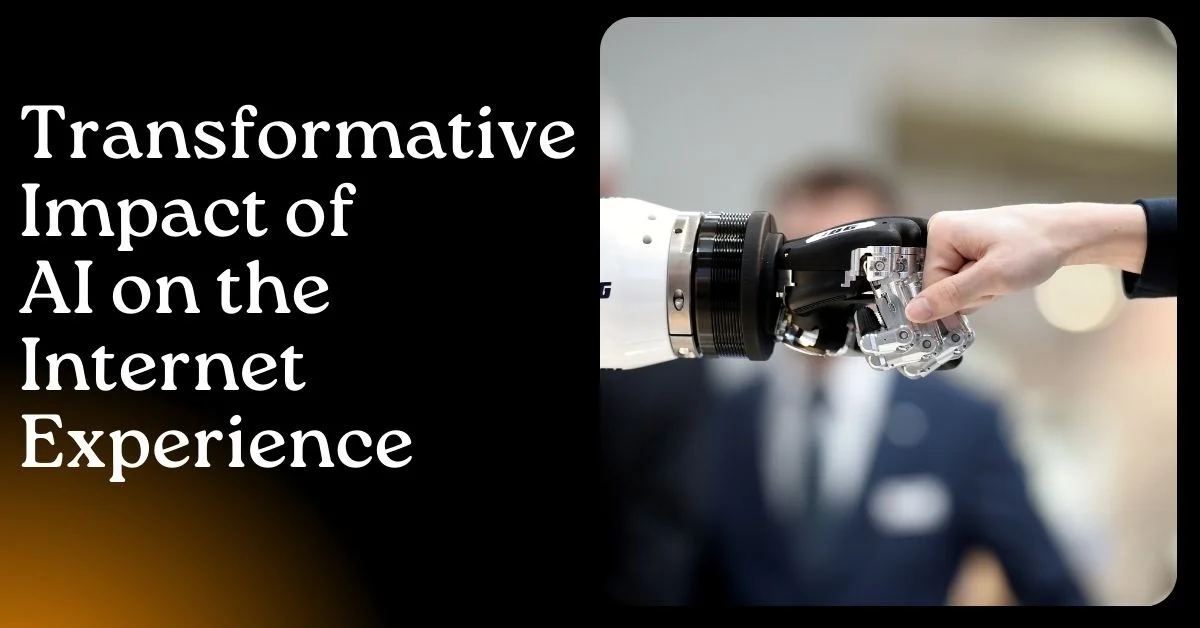The integration of Artificial Intelligence (AI) into the internet is revolutionizing the way we experience the digital world, making it more personalized, interactive, and akin to human interactions. As we enter a new era of consumer experience, AI’s role in enhancing the human aspect of the internet is becoming increasingly evident. Here’s an exploration of how AI will make the internet more human in this new era.
Personalization at Its Peak
AI enables unprecedented levels of personalization, making online experiences feel more tailored and human. By analyzing vast amounts of data, AI can understand individual preferences, browsing habits, and interests. This capability allows for the customization of content, product recommendations, and even website layouts to suit each user’s unique tastes, mirroring the personal attention one might receive in a physical setting.
Enhanced Interaction and Engagement
Chatbots and virtual assistants powered by AI are transforming customer service and interaction online. These AI-driven tools can engage with users in natural, conversational language, providing assistance, answering queries, and even offering recommendations. This level of interaction, which closely mimics human conversation, fosters a more engaging and human-centric online experience.

Accessibility and Inclusivity
AI is making the internet more accessible and inclusive, ensuring a human-centric experience for all users, including those with disabilities. Features like voice-to-text, text-to-speech, and intelligent image recognition help break down barriers, allowing more people to access and engage with online content in ways that suit their needs and abilities.
Emotion Recognition and Empathy
Advancements in AI include emotion recognition technologies, enabling the internet to respond to the emotional state of users. By analyzing voice tones, facial expressions, and even typing patterns, AI can gauge a user’s mood and adjust responses accordingly, much like a human would in a face-to-face interaction.
Predictive Analytics and Anticipating Needs
AI’s predictive analytics can anticipate user needs before they even express them. By analyzing past behavior and other relevant data, AI can make informed predictions about what a user might be interested in or require next. This proactive approach to consumer experience is akin to the intuitive understanding that often occurs in human interactions.
Creating Immersive Experiences
AI is at the forefront of creating immersive, interactive online experiences that closely mimic real-life interactions. Through technologies like virtual reality (VR) and augmented reality (AR), AI can create engaging environments where users can interact with digital elements as if they were real, enhancing the human element in digital experiences.
Social Media and Community Building
AI contributes to the humanization of the internet by helping build and maintain online communities. It can identify and group individuals with similar interests, facilitate interactions, and even moderate discussions to maintain healthy and supportive environments, similar to the role humans play in community building and social interactions.
Ethical and Responsible AI
As AI becomes more human-like, the importance of ethical and responsible AI development cannot be overstated. Ensuring that AI systems are designed with human values, privacy, and security in mind is crucial for maintaining trust and a sense of humanity in these interactions.
Enhancing Creativity and Content Creation
AI tools are assisting in content creation, from writing aid software to graphic design tools, enabling more people to express their creativity. These tools can suggest improvements, generate ideas, and even automate certain aspects of the creative process, augmenting human creativity rather than replacing it.
Learning and Development
The educational aspect of the internet is being transformed by AI, which can provide personalized learning experiences, adapt to individual learning styles, and even identify areas where a learner needs more support. This personalized approach to education mirrors the attentiveness and adaptability of a human educator.
E-commerce Evolution
In e-commerce, AI is creating experiences that mirror the personalized attention of a retail assistant. From personalized shopping suggestions to virtual try-on rooms, AI is enhancing the online shopping experience to be more interactive, engaging, and human-like.
Impact on Work and Collaboration
AI is also changing how we work and collaborate online. By automating routine tasks, AI allows humans to focus on more creative and collaborative aspects of work. Additionally, AI-powered collaboration tools are making remote work more efficient and human-centric, bridging the gap created by physical distance.

Privacy and Personalization Balance
While AI enhances personalization, balancing it with user privacy is essential. Developing AI systems that respect user data and provide transparency about how data is used is crucial for maintaining a human-centric approach to the internet.
Global Connectivity and Understanding
AI is breaking down language barriers and cultural differences, fostering global connectivity and understanding. Translation tools and cultural insights provided by AI help users connect and communicate more effectively with people from different parts of the world, enhancing the human connection on a global scale.
Constant Evolution and Adaptation
The most human-like aspect of AI is its ability to learn and evolve. AI systems continuously learn from interactions and feedback, adapting to better meet user needs and preferences, much like humans do as they grow and gain experience.
In conclusion, AI is not just transforming the internet into a more efficient.










